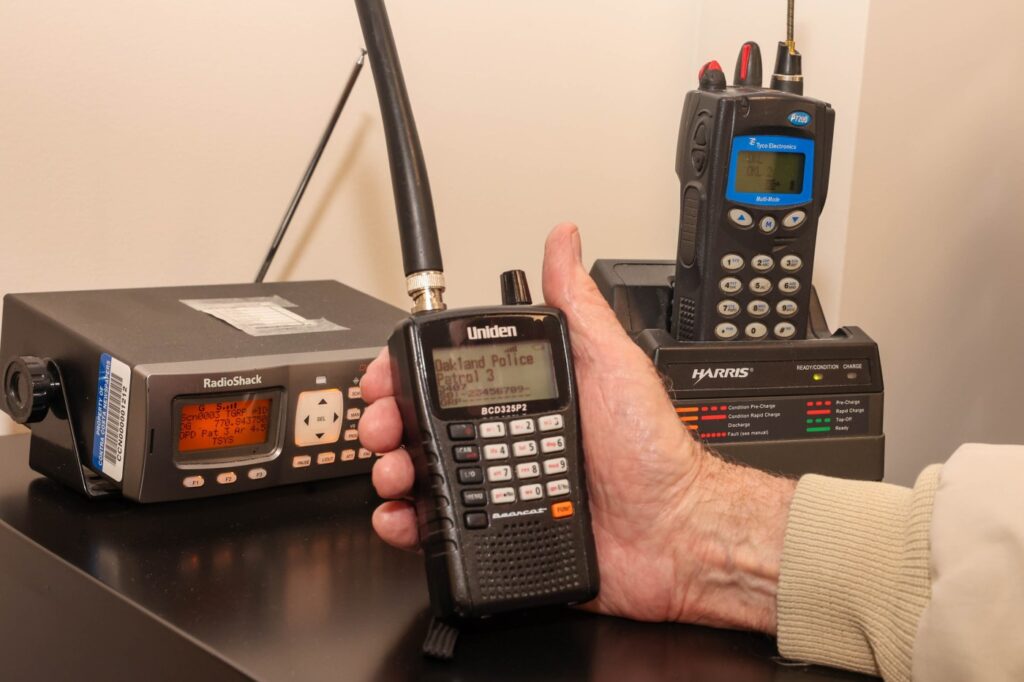
UPDATE: The Oakland Police Department will cut off public access to police radio communications starting at 4 a.m. on September 6, a significant shift that will hide real-time emergency information from residents and journalists alike. This decision has sparked widespread backlash from local officials and accountability advocates who argue that transparency is vital for public trust.
As of Wednesday, the police will no longer broadcast dispatch conversations, including critical updates on emergencies like earthquakes, shootings, and routine traffic stops. The department’s move to encrypt communication has been described as “disturbing” by state Senator Josh Becker, who has fought for legislation to limit police encryption. “We need accountability and transparency,” Becker stated. “The public has had access to this for more than 100 years, and it has worked.”
The announcement was unexpected for Oakland Mayor Barbara Lee, who only took office a week before the department initiated the encryption process. In a statement, she expressed concern, saying, “Transparency is very important to me,” and promised to investigate the matter further.
This decision follows a trend among several Bay Area cities that have also restricted access to police radio traffic, often citing a 2020 California Department of Justice directive aimed at protecting sensitive information. However, critics point out that this directive does not mandate encryption.
What makes Oakland’s situation unique is that the department is currently under federal oversight due to a history of misconduct, including the notorious Riders brutality case. Activists and legal experts, including civil rights attorney John Burris, warn that the shift to encrypted communications could lead to increased secrecy and less accountability. Burris emphasized, “You get in more trouble when police officers can operate in more secrecy. This is an approach that’s sort of going backwards.”
In response to the concerns, the Oakland Police Department defended its decision, stating that encryption is crucial “to protect the safety of both the community and our officers.” They pointed to a memo from former Attorney General Xavier Becerra that encourages safeguarding sensitive information while still allowing for public safety communications.
The implications of this change are profound. Open radio traffic has long been a tool for journalists and the public to monitor police activities, particularly during emergencies. The ability to access real-time information during crises, such as mass shootings or natural disasters, is invaluable. Advocacy Director Ginny LaRoe from the First Amendment Coalition remarked, “The public has benefitted for decades from the ability of reporters and photographers to track volatile, fast-moving situations.”
While other cities, including San Francisco and San Jose, have also encrypted their radios, the Oakland Police Department is the only agency to do so while under federal scrutiny. The city’s commitment to transparency has been questioned, especially since past records requests have been met with delays.
City Administrator Jestin Johnson stated that the city intends to maintain transparency and will prioritize requests from the media for recordings of radio traffic. However, past issues with fulfilling records requests raise doubts about the city’s ability to uphold this promise.
As the encryption takes effect, residents and advocates are left wondering how this will impact community safety and police accountability. The decision has already stoked fears of a return to less transparent policing, further complicating the relationship between law enforcement and the communities they serve.
Authorities are expected to provide further updates on the implementation of this policy. Public discussions surrounding police accountability and transparency are likely to intensify in the coming days.







